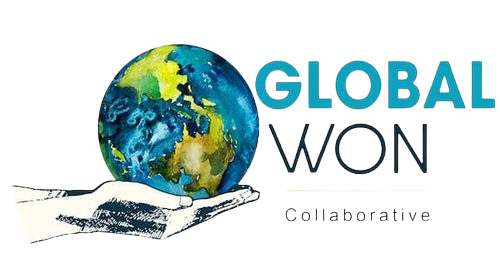a global won initiative
Education: Empowered Mentors "Paying It Forward"

How the U.S. Education Compares to Other Countries
The U.S. education system is decentralized, with each state setting its own curriculum. This system offers diversity in public, charter, and private schools, emphasizing broad liberal arts education rather than early specialization. In contrast, countries like Finland and Japan have centralized systems, focusing on equity, fewer standardized tests, and stronger emphasis on STEM. These countries consistently outperform U.S. students in math, science, and reading (PISA assessments). The U.S. also faces significant inequality due to school funding through local property taxes, leading to disparities in resources, while countries like Finland provide more equitable educational opportunities.
Challenges
Key challenges include socioeconomic disparities affecting access to quality education, teacher shortages driven by low pay and large class sizes, and the over-reliance on standardized testing, which can stifle creativity. Many students, particularly in underserved communities, also lack access to STEM and technology resources, limiting their competitive edge. Additionally, there is a growing need for mental health support, as students face increasing rates of anxiety and depression. Addressing these challenges requires systemic reform and increased investment in equity, teacher support, and comprehensive mental health services.
Global Won Initiative: Empowered Mentors "Paying It Forward" Solution
The "Global Won" initiative could address these challenges through a mentorship-driven, community-centered approach that empowers individuals to "pay it forward." Here’s how it could work:
Mentorship Programs in Schools:
Create a global network of mentors (professionals, educators, retired experts) who volunteer to work with students in underperforming or underserved schools.
Mentors could guide students in career pathways, provide tutoring in key areas like math, science, and reading, and offer life skills such as financial literacy, problem-solving, and leadership.
Focus on mentorship that bridges the gap between academic learning and real-world application (similar to Germany’s vocational model).
Teacher Empowerment:
Provide mentorship programs for teachers as well. Experienced educators can mentor new teachers, helping them navigate the challenges of the profession, reduce burnout, and implement more creative teaching methods.
Introduce professional development initiatives aimed at equipping teachers with the latest teaching technologies and methods from top-performing countries (e.g., Finland’s student-centered approaches, Singapore’s focus on STEM).
Community Involvement:
"Pay it forward" mentors could extend beyond the school, involving parents and local community members to create a more holistic support system for students.
Encourage students who have benefitted from mentorship to eventually become mentors themselves, fostering a cycle of continuous support.
Global Perspective:
Through partnerships with schools in other countries, students can gain exposure to different educational practices and global challenges.
Cross-country collaboration can be facilitated via online platforms, where students share ideas, collaborate on global projects, and learn from different educational systems.
Technology and Innovation:
Implement online mentorship and learning tools, especially for students in rural or underserved areas.
Provide access to digital resources, coding programs, and STEM education, leveling the playing field for all students.
Measurable Impact:
Track progress through student performance improvements, but also in terms of mental health, engagement in learning, and long-term career success.
Encourage the sharing of stories and testimonials from students and teachers who have benefitted from the program, inspiring others to join and contribute.
By focusing on mentorship and creating a global community that shares knowledge and resources, the "Global Won" initiative can play a significant role in addressing the gaps in the U.S. education system and beyond. This “pay it forward” system would create ripple effects, positively impacting students, teachers, and communities worldwide.




Global Won News
Blog Posts On Global Won Partners and Activities

Food Challenges
Food insecurity is a growing crisis, affecting millions across the globe. From urban food deserts to struggling rural farms, the challenge of feeding the world’s population requires more than just sho... ...more
Education ,Farm & Garden families &Food Scarcity
March 28, 2025•1 min read

A World Filled With Peace
The Path to Global Unity ...more
Education ,Training &World Peace
March 21, 2025•1 min read

Families, Seniors & Communities
Strengthening the Bonds That Matter Most ...more
Education ,Training &families
March 14, 2025•1 min read

Cyber Security Training
Expand Your Horizons with Cyber Security Global Won is partnering with Reyncon Educational Services & Training to provide a 10-week entry-level Cyber Security Training. Take advantage of this opportun... ...more
Training
November 15, 2024•1 min read

The commUNITY GRID
In March 2020, the idea of destination ranches for diverse groups transformed into the commUNITY GRID network, linking startup and existing farms, ranches, retreats, and wellness centers nationwide. T... ...more
Farm & Garden
November 15, 2024•2 min read

Trade Not Aid, Africa for the world (AFTW)
Africa, with its vibrant young populace of 1.3 billion, vast resources, and newly asserted “trade not aid” challenge to the world can catapult to global prominence in a decade. Six proposals are offer... ...more
Education
November 15, 2024•3 min read
Copyright Global Won 2024 | Privacy
